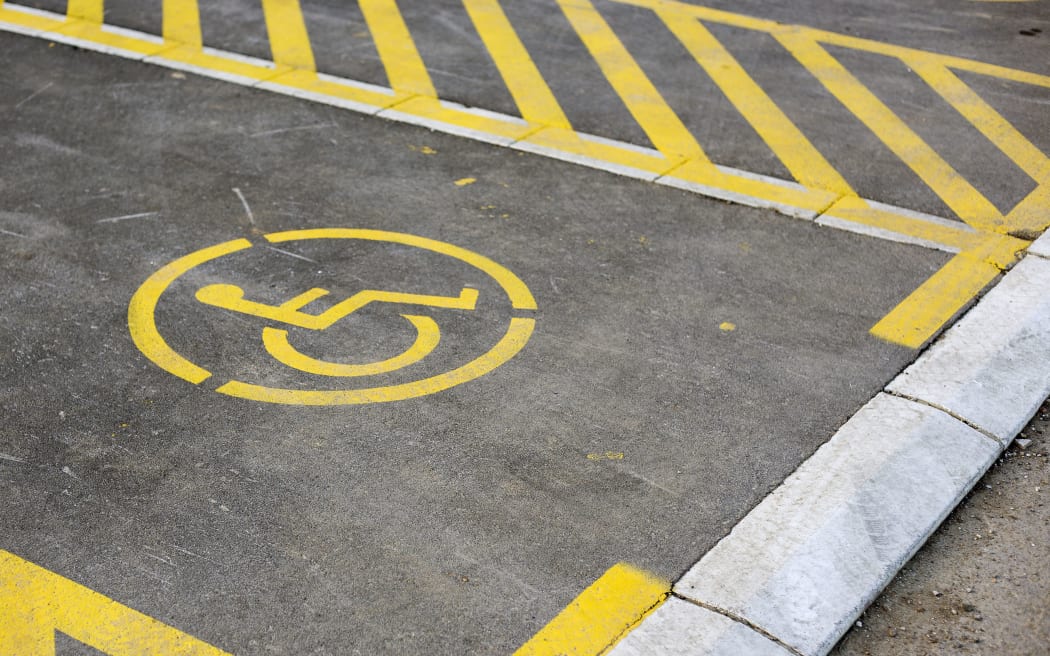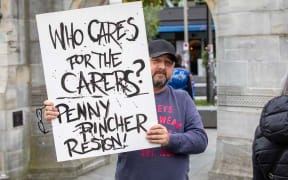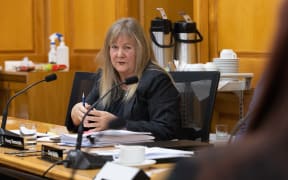
(File photo.) Photo: 123RF
"Barriers are everywhere for disabled people in Gisborne," says Karen Tait, who has an adult son with rheumatoid arthritis and also has the condition herself.
Tait set up a meeting last Thursday to ask Gisborne District Council (GDC) to renew their disability strategy, which expired over 10 years ago.
"We're a silent minority," Tait said to LDR after the meeting.

"Every other minority group is able to get active when something unjust happens. We often don't have the energy to use our voice," she said.
After working in Auckland as an activist and social worker for disabled people, Tait came to Gisborne for a retired "quiet life but (it) has been busy ever since".
In 2020, she co-led a movement that resulted in parking fees being dropped for disabled people in Gisborne, and now she has co-created the Whaikaha community led recovery plan.
Whaikaha - Ministry of Disabled People selected six members of the disabled community to create the proposal, and last Thursday they shared it with members of the district council to see if they could incorporate it into their plans.
The disability strategy's initial intent was for impaired people to fully participate in society without barriers, Tait said.
"Come on. We've got barriers everywhere ... and the strategy says it is supposed to be updated every three years," she said.
During the presentation, there were calls for the council to have a disability advisory group, as well as a resource centre for disabled people and updated emergency response procedure.
Recovery connector Rena Kohere said the recovery plan had been shared back with the council and many different agencies were looking at plans to meet these aspirations.
Deputy Mayor Josh Wharehinga said having a disabled advisory in the council should be quite straightforward to provide.
Before the meeting, Sustainable Futures director Joanna Noble acknowledged the outdated strategy but said "those who have a disability are always in the front of our minds when any new community facilities are designed".
"Mobile parking locations are strategically placed by banks and other essential shops like supermarkets," she said.
"The Kiwa Pools or new crossings (like the Peel Street roundabout) have modern elevated platforms, universal access-appropriate ramp gradients as well as blind/low vision aids."
However, Tait raised the pools as a reason for the council to have a disability adviser on staff.
"I was pretty brassed off when the council did closed-door meetings for the pool ... because there are so many things that are wrong with the pool for accessibility.
"You walk down the ramp, which is beautiful, and you get there, and there's a two-metre drop," she said.
A fall outside the council illustrated to Heidi Lepper - one of the presenters and creators of the recovery plan, who is legally blind and relies on mobility aids - why the council needed a skilled disability adviser.
"I had a horrific fall in the disability park outside (council's offices). There was a tree there and because of my vision, I couldn't see, and because of my mobility, I had no balance. I tripped on one of the roots and, bang ... only just missed the kerb," she said.
The car park has since been moved. However, the team noted a disabled car park would not have been put in front of a tree with roots had the council had a disability adviser.
Co-creator of the recovery plan Dan Ajello - who is a double amputee by birth and occupational therapist for disabled people - mentioned Mount Maunganui had polyfibre matting that they roll out across similar accessways.
"So I think there are many opportunities, when we talk about infrastructure, footpaths, roading and buildings," he said.
He also said that the national building code currently contained an accessibility section, but it was solely specified by architects and ergonomists, and hadn't involved input from the disability community.
Group welfare manager Dallas Haynes said the emergency management team had been completely redesigned since Cyclone Gabrielle as the event uncovered a massive gap in terms of their relationship with any disability group.
"So we've now redesigned the entire group and we now have space and an actual chair to have a disability group join us," she said.
Noble said a review of the council's Disability Strategy was on the work programme, but the timing and scope of the review had not been confirmed.
A member of council at the event on Thursday said it was on the work programme to start work on the strategy in 2025.
LDR is local body journalism co-funded by RNZ and NZ On Air.






